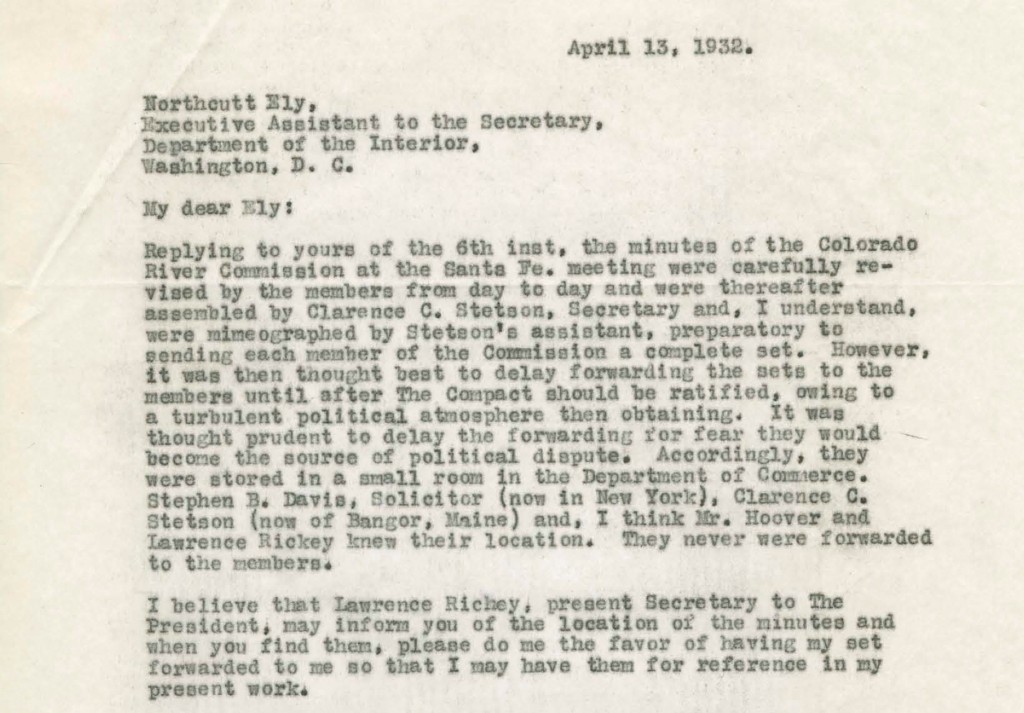The negotiation of the 1922 Colorado River Compact governing the allocation of water from the West’s great river, and the ratification process that followed, was a politically delicate process.
Precisely how delicate is made clear in a fascinating exchange of letters 10 years after between Colorado attorney Delph Carpenter (the compact’s primary architect) and Norcutt Ely, who at the time was executive assistant to Interior Secretary Ray Lyman Wilbur.
The Compact Commission’s 27 sessions were largely closed affairs, though detailed minutes were kept. Ely wrote Carpenter in 1932 inquiring about their whereabouts:
Would you be good enough to tell me where I might find minutes of the meetings of the Colorado River Commission which led up to the execution of the Colorado River Compact.
Carpenter’s reply is fascinating. The minutes had been “carefully revised by the members from day to day”, Carpenter wrote, and then mimeographed with the idea of sending a set to each member of the Commission. But that never happened:
It was then thought best to delay forwarding the sets to the members until after The Compact should be ratified, owing to a turbulent political atmosphere then obtaining. It was thought prudent to delay the forwarding for fear they would become the source of political dispute.
Instead, they were stashed in a “small room” at the Commerce Department. Carpenter suggests several people who might know where they were, and that they be forwarded to the state representatives “before they become lost”.
Thankfully, they were not lost. The University of Colorado has published them in full.
I found the Carpenter-Ely letters in the Colorado State University digital collection.

